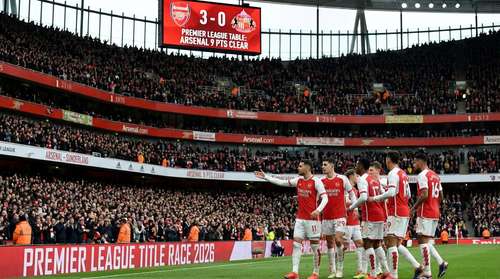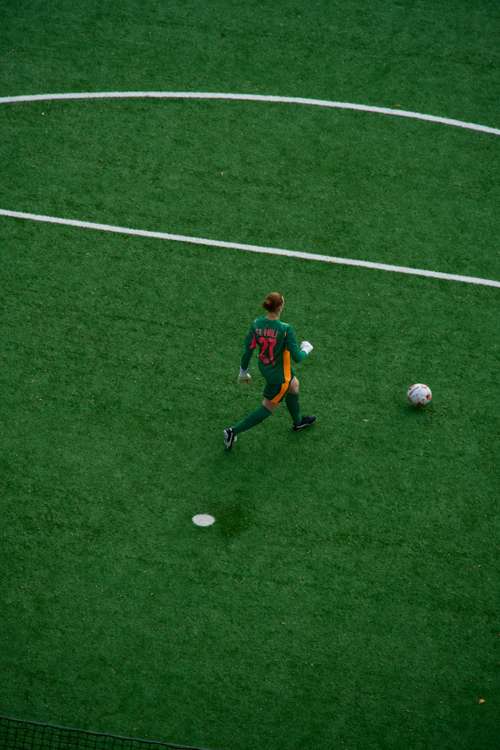‘‘I'm obviously very excited and honored to be here today as the new head coach of England. I just had the chance to read a quote from Pele at Wembley who said that Wembley is the heart, the capital and the cathedral of football. And I think he was absolutely right.”
Those were Thomas Tuchel's first words as he was surprisingly presented to the English media as a permanent replacement for Gareth Southgate, who left his role as England's manager following defeat to Spain in the final of the UEFA Euro 2024 in July.
For anyone who had watched Thomas Tuchel’s first press conference when he landed his first job on English soil at Chelsea, and compared it to his first as the new England manager, the similarities were only too obvious. From his opening statement, you could see straightaway how much he has grown in professional confidence and stature, but the way he handled potentially difficult questions from the media, the noticeable enthusiasm of managing in England, the absolute conviction in his own decision, the respect expressed for his predecessor’s work and the clarity of mind over just how important and challenging he expects the job to be, these were all qualities you could immediately observe in both press conferences.
Although, with Chelsea, it was more straight into the line of fire for Tuchel. Frank Lampard had just been sacked and he was brought in almost immediately before the next league game against Wolves. With England, the 51-year old German tactician will have to wait until January 1st, 2025 to formally commence his role, and another two months to get the chance to manage a Three Lions game for the first time.
However, that has not stopped the conversation around his appointment from generating a bit of a controversy within the media, with many headlines already surfacing with quotes from influential figures in English football—mostly around his nationality.
Why a German Coach?

There are many who believe an Englishman should have been given the role instead, and they do have their patriotic reasons which cannot be discarded. That's just football anyways, such sentiments never really last as long as the team is winning and the manager continues to be brilliant in his dealings with the media.
However, it is quite instructive that none of these concerns over Tuchel have been aimed towards his competence and capacity to help guide this young and hugely talented crop of English players over the line. Perhaps, this is because of his previous records as an astute tactician who works well with young players and knocks teams out in the latter stages of major competitions.
Thomas Tuchel's Road to Becoming England Manager
Firstly, let's take a short trip down memory lane to understand Thomas Tuchel's journey in football and just exactly how his previous jobs have prepared him for this role.

The German began his coaching career in the year 2000. He was only 27, forced to quit his career as a professional footballer early due to a knee cartilage injury. His first coaching job was at VfB Stuttgart, where he was hired by Ralf Ragnick to work as a youth team coach while he gathered his badges. His work at Stuttgart was recognized as he aided the development and created a path to the first team for several youth players, including two names who would go on to be household names in German football, Mario Gómez and Holger Badstuber. He also coached the under-19s to the Bundesliga title in 2004/05.
In 2005, Tuchel went back to FC Augsburg, the club where he came through as a youth player. There, despite lacking a UEFA Pro Licence, his tactical discipline saw him given the role of Youth Team Coordinator, a role he maintained for three years while he completed his UEFA Pro License course in Cologne. Finally, his breakthrough came in 2008 when he accepted to become First Team Coach at FC Augsburg II, Augsburg’s reserve team.
After just a year in the role, he had impressed boardrooms in Germany so much that he was brought in to act as Youth Coach at Mainz 05 before getting his first shot at senior management in the German top flight after the manager was sacked. Again, his perfectionism and attention to tactical detail was praised by club execs. He managed to get the players to buy into his highly technical ideas and secured several wins, despite his team’s technical inferiority compared to other teams in the league.
Nonetheless, Tuchel continued his good work at Mainz, finishing 9th in his first season, 13th in the second after key players were sold, and 7th in the third. At the end of the third season, he asked to be released from his contract, and in 2015, he finally made his big move to Borussia Dortmund after Jurgen Klopp’s departure to Liverpool. Frankly, Dortmund had better players compared to Mainz, but it was also a young squad and Tuchel's developmental ability was called upon yet again to unearth gems such as Ousmane Dembele and Christian Pulisic.
Despite only spending two years at the club, Tuchel not only finished second to Bayern in the league, he also won the 2017 DFB Pokal, famously beating Bayern Munich in the semi final and Eintracht Frankfurt in the final to clinch the trophy. That match saw Pierre-Emerick Aubameyang and Pulisic shine while Ousmane Dembele scored and emerged man of the match.
Granted, his time at Dortmund (and basically everywhere else he has worked) was fraught with off the pitch issues with the boardroom over ambitions and transfer activities, but this is the first time in his senior management career that he'll have to work without worrying about issues like transfers and selling players to rival teams. If anything, England is more likely to poach talents from their less privileged neighbors (i.e Declan Rice et Jack Grealish).
Is Tuchel Ready to Take England to Glory?
Being his first role as an international manager, some have raised concerns over whether the German will find the transition from club to international football easy. However, from his demeanor and responses at the unveiling, it's obvious Tuchel is not too fazed at the prospect of working in an environment that's markedly different from what he has been used to all his life.
He's not taking it for granted either, but rather relishing the experience. Usually, the first step towards solving a problem is recognizing it and Tuchel knows. He knows this job means spending less time with the squad, doing most of the work outside camp and using the limited time spent with the players during international breaks to drill in the ideas that had been developed outside camp. The fact that he knows and is ready for it, should excite any England supporter because when Tuchel prepares, he really prepares. But what are the things that could stand in his way?
The English squad, though very talented, is a young one. For whatever shortcomings Gareth Southgate may have had in his 8 eventful years as England manager, one of the things he did very well was to create a family-like atmosphere in the English camp. He had an almost father-son style relationship with the players and it was obvious that they all trusted and found him easy to work with.
For such a young group, it will be crucial that a manager of Thomas Tuchel's reputation can come in at a time when they may possibly be downcast from losing such a manager, to throw an arm around them and remind them there's still work to be done. And he has always done just that. From Mainz to Dortmund to PSG to Chelsea and to Bayern, Thomas Tuchel's relationship with young players has always been excellent.

At Chelsea for example, he came in after Frank Lampard’s sacking and guided the London team to Champions League victory. The team included youngsters like Reece James and Mason Mount, who both played key roles in the campaign. Some would give significant credit to Frank Lampard and Tuchel himself would agree, but the point is, helping young players overcome the potential mental blocks and limitations that could so easily set in in the knockout stages of such a tough competition is never a piece of cake. That kind of mental toughness is exactly what this England squad needs to develop over the next 18 months.
Tuchel's time after Dortmund was spent at PSG, Chelsea, Bayern, and now he's the England manager tasked with turning the country's near misses into a long awaited moment of national triumph.
At unveilings, sometimes you have situations where both the manager and their employers would try to avoid talking about clear expectations, perhaps to keep pressure away. Thankfully, one of the best things about his unveiling press conference was that he didn't shy away from this question. ‘‘I know that there are some trophies missing in the federation and, of course, I want to help to make it happen,’’ he said at the unveiling.
There's no need to hide from the question, because if there's any tactician in football that can help make this a reality, it's Tuchel. He's the king of knockout football and getting teams over the line is his specialty. Tuchel has an amazing record of 70% wins in knockout games, which is even more impressive when you consider he has only ever managed two teams that could guarantee such results, and he spent less than 4 years there combined.
Looking Ahead

The ultimate knockout manager in football has not always had the squad to complement his ability, but this time he does and he has 18 months to bring football back home to Wembley, a ground the late Pele described as, “the heart, the capital and the cathedral of football.” If you're a supporter of the English national football team, sit back and relax, because it's about to be an exciting ride!




